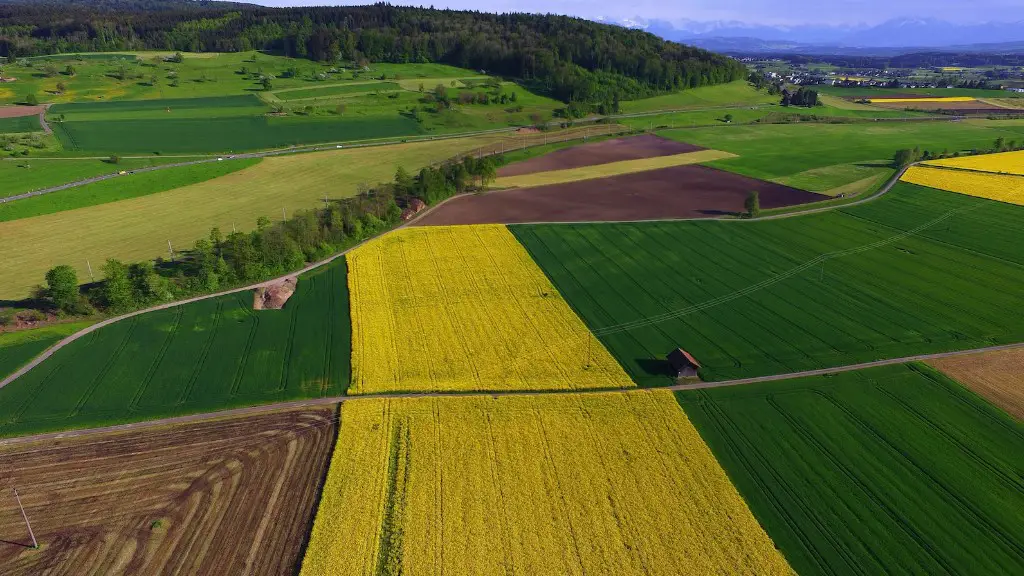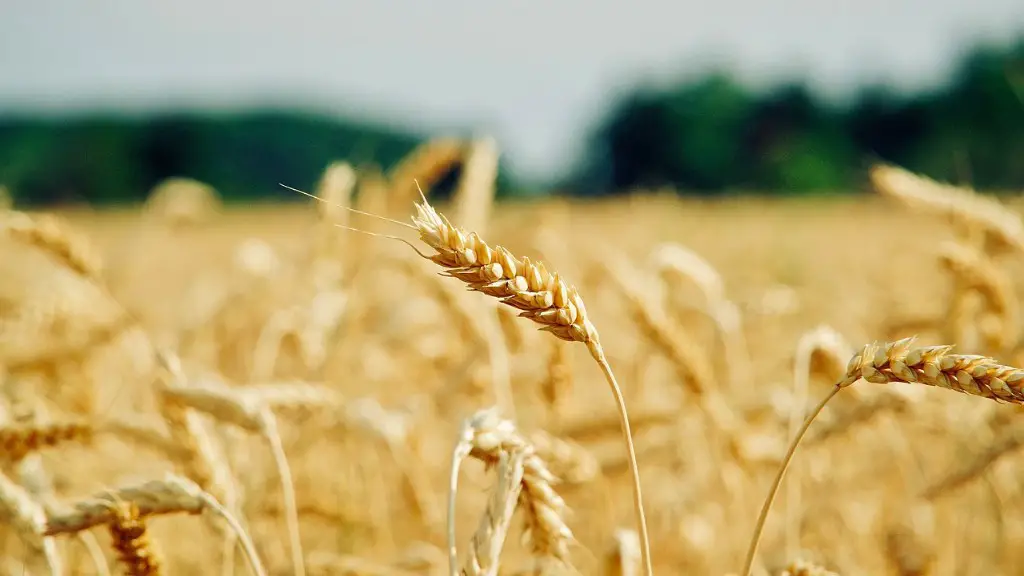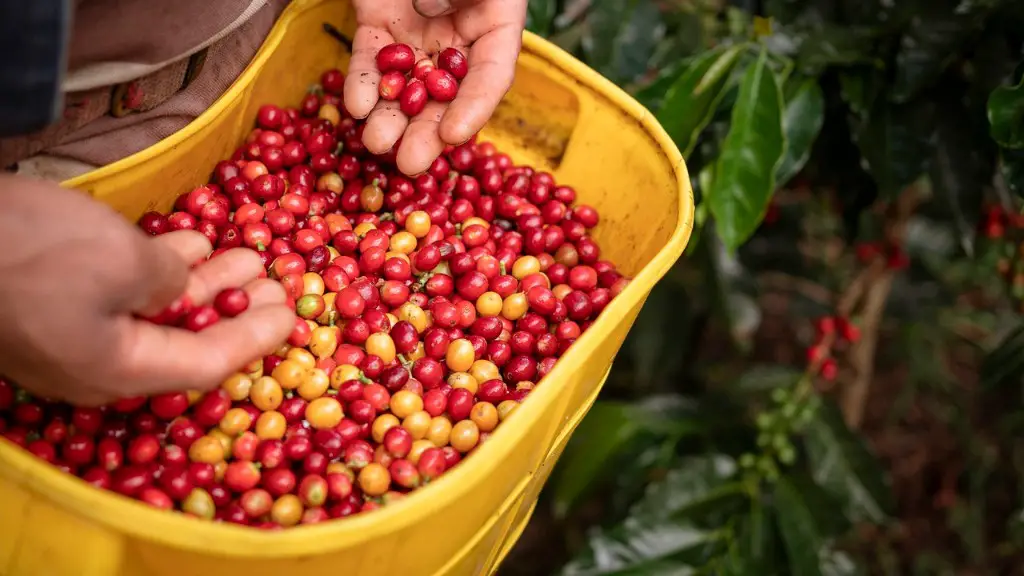Agriculture is a key driver of global economic and social development. However, it suffers from a myriad of challenges that threaten to stymie its growth. The main problems faced by farmers and those involved in the agricultural industry can be summarized into four broad categories: climate change, lack of resources, lack of access to markets and government support, and human resource issues.
Climate Change
Climate change is an ever-present problem in agriculture. Increases in temperature, unpredictable and often severe weather, and rising sea levels due to warming ocean waters all have a significant impact on the ability of farmers to produce food. Additionally, water availability is a major issue. Heatwaves can dry out the soil, making it difficult or impossible for certain crops to be grown. Similarly, extreme droughts can lead to crop damage or loss of livestock, and heavy rains can cause soil degradation and flooding.
Farmers also face challenges in preventing and managing pests and disease due to climate change. Warmer temperatures can lead to longer growing seasons, which can provide a more hospitable environment for certain pests. Also, increased temperatures can shorten the lifespan of certain natural predators, leaving weakened crops vulnerable to attack.
Agriculture is also highly sensitive to carbon emissions. Greenhouse gases trap heat, leading to a rise in global temperatures. This, in turn, causes irregular weather, which can make it difficult to plan and predict crop yields. The agriculture industry must innovate to devise more efficient and sustainable practices in order to continue to produce food while also mitigating climate change.
Lack of Resources
Farmers and small Farmer Cooperatives often lack the financial resources needed to purchase adequate inputs and other necessities, such as fertilizer, land, and improved seeds. Additionally, water scarcity can cause severe problems, as this is vital for crops, livestock, and environment alike. Furthermore, many farmers lack access to modern agricultural techniques and technology and are relied on to manually complete labor-intensive tasks.
Agriculture requires vast amounts of energy, water, and other resources in order to operate. This adds to the burden for farmers and creates a cost that often becomes untenable for many. Due to the capital-intensive nature of the industry, farmers have to borrow extensively from banks to purchase resources. This leads to additional costs as well as a high debt burden.
Due to the lack of resources and access to markets, farmers often have to sell their crops to middlemen at significantly reduced prices. This leads to a perpetual cycle of poverty and undernourishment, as farmers are unable to make a living wage, leaving them and their families malnourished and destitute.
Lack of Access to Markets and Government Support
Farmers and rural communities often lack access to markets outside of their local areas. This makes it difficult for them to obtain a fair price for their produce, as they are unable to take advantage of higher prices in distant markets. This can further stymie growth, as local farmers are unable to develop their businesses into larger, more profitable enterprises.
In addition to this, many governments have not instituted effective policies or support for agriculture. Without the regulation or proper incentives, the agricultural sector can often remain stagnant and inefficient. For example, underdeveloped infrastructure can severely limit the accessibility of markets, as well as increase the cost of transportation and inputs. Similarly, lack of funding or infrastructure can create an environment where the development of more viable agricultural practices is difficult or impossible.
Furthermore, government policy can have a huge impact on the industry. Unplanned releases from dams or reservoirs can cause flooding, another challenge that is beyond the control of small-scale farmers. Additionally, environmental policies can also have a significant impact. Through subsidies or tax breaks, governments can provide support for agricultural practices and discourage unsustainable practices.
Human Resource Issues
As the population grows, it increases the strain on the agricultural sector. Farmers often find it difficult to access quality staff, as well as those knowledgeable in specialized fields. Additionally, wage inflation can make the sector unappealing for those seeking well-paying jobs, leading to an ever-decreasing number of qualified farmers.
Due to the aging population of many rural areas, there is often a dearth of young people interested in agriculture. This can be attributed to a lack of incentives, such as unemployment benefits, health insurance, and other benefits. As more young people flock to the city, it further exacerbates the human resource problem. Without the proper incentive, agricultural careers can often seem dull and unrewarding, making it difficult to attract and retain quality staff.
Another contributing factor is the rising cost of living, as well as the cost of housing. This can often be cost-prohibitive for many, making it difficult to survive off an agricultural salary. Furthermore, rural areas often lack the services and amenities that come with urban life, leaving many to search for jobs elsewhere. These economic and social issues can prevent many from staying in their home communities and participating in the agricultural sector.
Conclusion
In conclusion, the agricultural industry is fraught with challenges that can impede growth and development. Climate change, lack of resources, lack of access to markets and government support, and human resource issues can all create difficulties for farmers. In order to increase the sustainability and efficiency of the agricultural sector, governments must create suitable policy, regulation, and incentives in order to mitigate these issues, while also providing support and resources to those in the industry.



